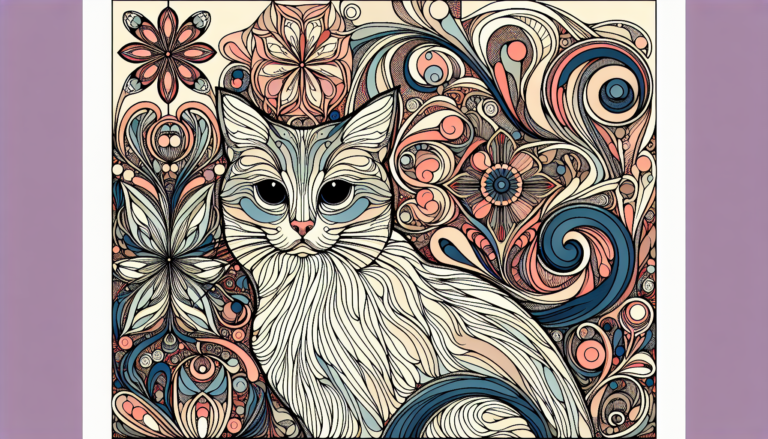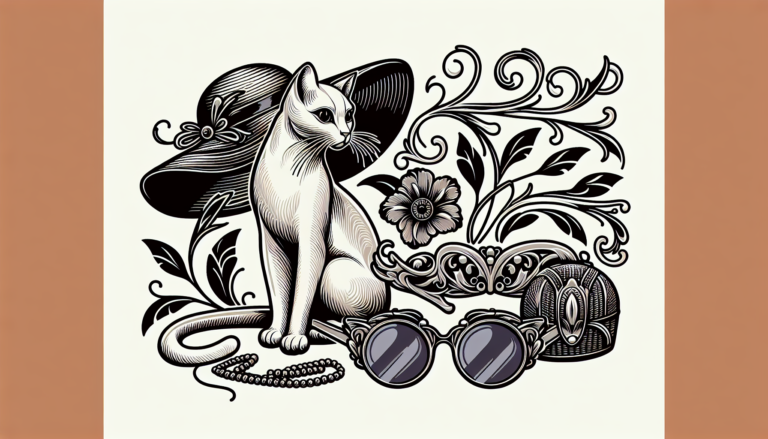Understanding the Lifespan of Cats
At Cat Karma Creations, we understand that the lifespan of cats is a critical aspect of responsible pet ownership. Understanding the lifespan of cats is essential for providing the best care and ensuring they live long, healthy lives. This article explores the average lifespan of cats, the factors that influence their longevity, and practical tips for extending their lifespan. By the end, you’ll have a comprehensive understanding of how to support your feline friend’s health and well-being.
Average Lifespan of Cats
At Cat Karma Creations, we know that the lifespan of cats can vary significantly depending on several factors, including whether they live indoors, outdoors, or in a mixed environment. Understanding these differences can help you provide the best care for your cat.
Indoor Cats vs. Outdoor Cats
Indoor cats generally have a longer cats lifespan compared to outdoor cats. On average, indoor cats live between 12 to 18 years, while outdoor cats typically live only 4 to 5 years. The primary reasons for this difference include:
- Indoor cats are protected from external threats such as traffic, predators, and harsh weather conditions.
- Indoor cats have better access to regular veterinary care, preventive treatments, and a controlled environment.
- Indoor cats are less likely to encounter diseases and parasites that can shorten their lifespan.
However, indoor cats are not without their own set of challenges. They are more prone to obesity and dental issues due to a sedentary lifestyle and less stimulation.
Mixed Environment Cats
Cats that spend time both indoors and outdoors have a cats lifespan that falls between that of indoor and outdoor cats, typically ranging from 8 to 12 years. These cats benefit from the safety of an indoor environment while also enjoying the mental stimulation of outdoor activities. However, they are still at risk from external threats and may require more careful management to ensure their safety.
Breed-Specific Lifespans
Some cat breeds have longer lifespans than others. For example, the Siamese and the Manx are known for their longevity, often living well into their late teens. On the other hand, breeds like the Maine Coon and the Persian may have shorter lifespans due to genetic predispositions to certain health issues. Understanding your cat’s breed-specific lifespan can help you tailor their care to promote longevity.
Factors Affecting Cat Lifespan
Several factors can influence a cats lifespan, including genetics, diet, exercise, and veterinary care. By addressing these factors, you can significantly improve your cat’s health and longevity.
Genetics and Breed
Genetics play a crucial role in a cats lifespan. Certain breeds are predisposed to specific health issues that can affect their longevity. For example, Persian cats are prone to respiratory problems, while Siamese cats may have a higher risk of dental issues. Understanding your cat’s breed-specific health concerns can help you take proactive steps to manage these risks.
Diet and Nutrition
A balanced diet is essential for maintaining a cats lifespan. Cats require a diet rich in protein, vitamins, and minerals to support their overall health. Feeding your cat high-quality, nutritionally balanced food can help prevent obesity and related health issues such as diabetes, kidney disease, and heart problems. Additionally, providing fresh water and avoiding overfeeding are crucial for maintaining a healthy weight and extending your cat’s lifespan.
Exercise and Activity Levels
Regular exercise is vital for a cats lifespan. Engaging your cat in physical activities can help prevent obesity, improve muscle tone, and enhance their overall well-being. Interactive toys, scratching posts, and playtime sessions can provide mental stimulation and physical exercise, reducing the risk of behavioral problems and health issues. Encouraging your cat to be active can significantly contribute to a longer and healthier life.
Veterinary Care and Preventive Health
Regular veterinary check-ups and preventive health measures are essential for extending a cats lifespan. Routine examinations can help detect health issues early, allowing for timely intervention and treatment. Vaccinations, parasite control, and dental care are also crucial for maintaining your cat’s health and preventing serious illnesses. By staying proactive with veterinary care, you can ensure your cat remains healthy and happy throughout their life.
Tips for Extending Your Cat’s Lifespan
Here are some practical tips to help you extend your cat’s lifespan and ensure they live a long, healthy life:
Regular Veterinary Check-Ups
Scheduling regular veterinary check-ups is one of the most important steps you can take to extend your cat’s lifespan. These check-ups can help identify and address health issues early, preventing them from becoming more serious. Regular vaccinations, parasite control, and dental care are also crucial for maintaining your cat’s overall health and well-being.
Balanced Diet and Nutrition
Feeding your cat a balanced and nutritious diet is essential for a cats lifespan. Choose high-quality cat food that meets their nutritional needs, and avoid overfeeding to prevent obesity. Providing fresh water and a variety of food options can help keep your cat healthy and satisfied. Consult with your veterinarian to determine the best diet for your cat’s specific needs.
Mental Stimulation and Environmental Enrichment
Mental stimulation and environmental enrichment can significantly improve a cats lifespan. Engaging your cat in activities that challenge their mind and provide physical exercise can help reduce stress and boredom. Interactive toys, puzzle feeders, and playtime sessions can keep your cat mentally and physically active, promoting a longer and healthier life.
Social Interaction and Companionship
Social interaction and companionship are important for a cats lifespan. Cats are social animals and benefit from regular interaction with their human family and other cats. Providing a multi-cat household or regular playtime sessions can help reduce stress and improve your cat’s mental well-being. Spending quality time with your cat can also strengthen your bond and enhance their overall quality of life.
Stress Management and Anxiety Reduction
Stress and anxiety can have a negative impact on a cats lifespan. Creating a calm and safe environment can help reduce stress and promote a healthier life. Providing a quiet space, using pheromone diffusers, and maintaining a consistent routine can help your cat feel more secure and relaxed. Addressing behavioral issues and providing appropriate enrichment can also help manage stress and anxiety.
Popular Quote
“A cat has nine lives for the following reason: A cat can successfully make a trip down a thousand stairways and not get hurt. A dog can do it only once. Cats know this; dogs do not.” — Will Rogers
Statistical Fact
According to the American Veterinary Medical Association (AVMA), the average lifespan of an indoor cat is 14 years, while outdoor cats typically live only 4 to 5 years. This significant difference highlights the importance of providing a safe and controlled environment for your feline companion. (Source: AVMA, 2021)
Three Tips for Extending Your Cat’s Lifespan
- Provide a Balanced Diet: Ensure your cat receives a balanced diet rich in protein, vitamins, and minerals. High-quality cat food can help prevent obesity and related health issues, contributing to a longer cats lifespan.
- Encourage Regular Exercise: Engage your cat in physical activities to keep them active and healthy. Interactive toys, scratching posts, and playtime sessions can provide mental stimulation and physical exercise, reducing the risk of behavioral problems and health issues.
- Regular Veterinary Check-Ups: Schedule routine veterinary check-ups to detect and address health issues early. Regular vaccinations, parasite control, and dental care are essential for maintaining your cat’s overall health and well-being.
Popular Questions About Cat Lifespan
How can I tell if my cat is aging well?
Signs of healthy aging in cats include maintaining a healthy weight, good mobility, and a shiny coat. Regular veterinary check-ups can help monitor your cat’s health and address any issues early.
What are the most common health issues in older cats?
Common health issues in older cats include dental problems, kidney disease, and arthritis. Regular veterinary care and a balanced diet can help manage these conditions and extend your cat’s lifespan.
How can I make my home more cat-friendly for an older cat?
Creating a cat-friendly environment for older cats involves providing easy access to food, water, and litter boxes. Soft bedding, ramps, and low-sided litter boxes can help make your home more comfortable for your aging feline friend.
Final Thoughts About cats lifespan
Understanding and supporting your cat’s lifespan is a crucial aspect of responsible pet ownership. By providing a safe environment, a balanced diet, regular exercise, and preventive veterinary care, you can help your feline friend live a long and healthy life. For more information on cat care and unique gifts for cat lovers, visit our website at Cat Karma Creations. If you have any questions or need assistance, feel free to contact us at our contact form, [email protected], or call us at (800) 343-1604. Follow us on Facebook and Instagram for more tips and updates. We are here to support you and your feline friends every step of the way.
| Feature | Indoor Cats | Outdoor Cats | Mixed Environment Cats |
|---|---|---|---|
| Average Lifespan | 12-18 years | 4-5 years | 8-12 years |
| Health Risks | Obesity, dental issues | Injuries, infections, parasites | Balanced, but still at risk |
| Environmental Factors | Safe, controlled environment | Exposure to predators, traffic, and weather | Combination of both |
| Social Interaction | High with humans, low with other cats | Low with humans, high with other cats | Moderate with both |
| Veterinary Care | Regular check-ups, preventive care | Less frequent, reactive care | Regular check-ups, preventive care |


